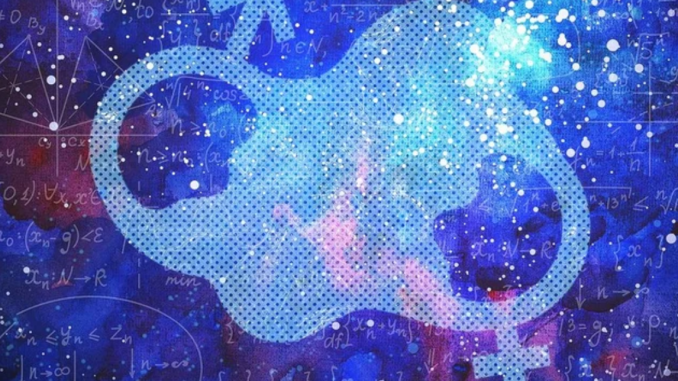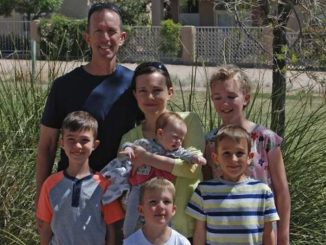
There’s a real concern that the public is losing trust in the scientific establishment, and maybe for good reason.
A recent news article in one of the world’s most prestigious science journals, Nature, contained an editor’s statement that sadly apologized for being insensitive to a new unscientific norm. The article was titled, “COVID vaccines safely protect pregnant people: The data are in.” The journal editor thought it was necessary to assure readers that, “Nature recognizes that transgender men and non-binary people can become pregnant. We occasionally use ‘women’ in this story when discussing studies that used the same language.” Even if some of the editors and subscribers to Nature may not be sure of the reality of biological science, the public surely is.
The trend to render flaccid the biological sexual divide is seen throughout science publications. The April 23, 2022, edition of Science News, published by the Society for Science & the Public, shows that even the title of an article — for example, “The Pregnant Pause: Why excluding pregnant people from medical research is a problem” — can display an unabashed ignorance of reality.
In short, biological science is real. An admixture of biology and personal preferences is synthetic.
Unfortunately, the science-y idea of the fluidity of the sexes is now reverberating throughout society, such as where required pronouns are popular and where Microsoft Word prompts you to use “identified as female at birth” rather than “biological female.”
Confusing the public with the idea that an individual who is not biologically female can get pregnant is just one instance of the undermining of true science to the detriment of society. Of course, biological males competing in women’s sports is another obvious example. Confusion is never helpful to maintaining a healthy social structure.
Yet, another, possibly overarching, problem to be solved, is the imposition of reputed final-form science or “settled science” on the public sphere.
In a just-released book, “Wonder: Childhood and the Lifelong Love of Science” (MIT Press, 2022), by Yale University psychology professor Frank C. Keil, the scientific establishment perspective is clearly revealed. This otherwise remarkable work is marred by a personal account that misses a critical aspect of scientific wonder.
As described in “Wonder,” while on a flight from New York to San Francisco, Dr. Keil engaged in a conversation with a seatmate who was a fellow Massachusetts Institute of Technology graduate. The fellow alumnus happened to be the head engineer of a large multinational company and soon prompted a discussion of the causes of climate change with Dr. Keil. Good details on the technical aspects of their lengthy exchange are provided by Dr. Keil.
After Dr. Keil “got off the plane in California in a state of cognitive disarray … [and arrived at his hotel, he] frantically Googled everything [he] could about climate change in a desperate attempt to reassure” himself that he wasn’t delusional about what he thought he knew about climate change. Later when he returned to Yale he even checked with an “eminent earth scientist and asked him how [he] could get a clearer understanding of the definitive proofs that global warming was largely due to human activity.”
Dr. Keil found his earlier seatmate’s arguments compelling and his facts seemed to be correct according to Google, but Dr. Keil had his former understanding about climate change disconcertedly shaken. So, he did what most people do; find agreeable information and even a companion you can trust to reassure yourself that your beliefs are correct. That’s a normal response for a person who wants to “cease contemplating different possible explanations” to the oxymoronic claim of “settled science” when it comes to climate change.
A few pages later in “Wonder,” Dr. Keil asserts that those who disagree with academicians’ conclusions on climate change are not just “deniers” but are disseminating climate change misinformation. He also imagines that deniers (or perhaps even those who simply challenge the foregone conclusions in the climate narrative) are “agents who are motivated by politics and/or economics to create doubt about scientific evidence and models.”
Perhaps worst of all, Dr. Keil relegates his learned former flight companion to a status of lacking wonder, when in reality the MIT graduate likely exhibited what Dr. Keil identifies as “sophisticated forms of wondering.”
There is so much wonderment to nature that wondering about the truth of the obvious, such as your gender identity, distracts from appreciating what is naturally real. Alternatively, being required by “settled science” to stop asking “why” and “how,” stop testing hypotheses, and stop challenging predictions also withers wonderment.
The public knows that people who are not biologically female cannot get pregnant and that knowledge of future conditions of the climate are not settled. Maybe the scientific establishment will catch up with those mundane notions before it loses too much more of the public’s trust.
* Article from: The Washington Times


